In February 1990, the musical landscape was a mixed bag of pop hits and evolving rock sounds. While artists like Janet Jackson (Rhythm Nation 1814), Phil Collins (…But Seriously), and Paula Abdul (Forever Your Girl) ruled the Billboard charts, the rock and metal scenes were in a state of transition. Hair metal was still at its commercial peak, with bands like Mötley Crüe (Dr. Feelgood) and Aerosmith (Pump) dominating the airwaves. Yet, beneath the surface, a different strain of metal was brewing—more technically demanding, faster, and far less concerned with mainstream appeal.
Riot, a band from New York City, was part of this underground movement, known for blending elements of power metal with speed metal and progressive metal. Unlike the more radio-friendly glam metal bands with teased hair and catchy choruses, Riot’s music was a complex, technical affair, marked by intricate guitar riffs, soaring vocals, and themes that extended beyond partying and heartbreak. Power metal, as Riot embodied it, emphasized high-pitched, operatic vocals, rapid guitar work, and epic, often fantastical or socially conscious lyrics. By 1990, bands like Helloween and Savatage were carrying the torch for the power metal movement, but Riot had been one of the genre’s unsung pioneers.
In the late 70s and early 80s, Riot was part of the first wave of American heavy metal bands that laid the groundwork for both power and speed metal. Albums like Fire Down Under (1981) hinted at what was to come, showcasing a faster, more intense approach compared to contemporaries like Judas Priest or Iron Maiden. They were more raw than the polished sound of glam metal but less extreme than the thrash metal explosion happening with bands like Metallica and Slayer.
When The Privilege of Power dropped in February 1990, Riot was well into their career, but the band’s story had been anything but stable. With constant lineup changes and a string of unfortunate label mishaps, they earned a reputation as “the unluckiest band in metal.” By the time this album hit the shelves, Marc Reale was the only original member still standing. Joining him were vocalist Tony Moore and drummer Bobby Jarzombek, both of whom were pushing the band’s sound into even more adventurous territory.
Musically, The Privilege of Power fits within the power metal mold, but it also strayed into progressive metal, with complex song structures and unconventional instrumentation. This was far from the hook-laden anthems of hair metal, instead offering something more intricate and less accessible. For an album to feature both horn sections (courtesy of the Tower of Power) and jazz-fusion guitarist Al DiMeola on a cover of his own Racing With the Devil on a Spanish Highway was unheard of in metal at the time. The band wasn’t just playing fast and loud—they were blending genres in ways that challenged what metal could be.
As Riot’s sound became more ambitious, it also became harder to categorize. They weren’t as thrashy as Metallica, nor were they as theatrical as Iron Maiden. Instead, they existed in that gray area of metal, pulling elements from speed metal, power metal, and progressive rock into something that could be all those things at once. By 1990, the rise of grunge was just around the corner, and the more complex, operatic metal that Riot embodied was about to be pushed further underground.
The timing of The Privilege of Power was bittersweet. It arrived at the tail end of metal’s golden age. For Riot, this album was a culmination of years of refining their sound and navigating the metal subculture, but it also marked the end of an era. Bands like Riot, who embraced power metal’s technical and melodic extremes, were facing an industry about to turn its back on metal’s more elaborate forms in favor of the raw simplicity of grunge.
For fans of metal’s more virtuosic, experimental side, however, The Privilege of Power was a bold statement. Released at a time when much of the metal world was still chasing arena-sized hits, Riot took the road less traveled, blending metal with horns, jazz, and political commentary. It’s the kind of album that didn’t cater to trends but instead cemented the band’s role in metal’s more cerebral subgenres. While Riot never became a household name, they earned respect within the metal community for their unwavering commitment to pushing boundaries.
Songs in this Episode
Intro - Metal Soldiers
19:50 - Storming the Gates of Hell
24:03 - Killer
25:22 - Maryanne
44:34 - Runaway
Outro - On Your Knees
Make Your Metal Voice Heard!
In our quest to explore the depths of 80s metal, we rely on you, our listeners. Your suggestions drive our show – be it an underrated classic or a forgotten gem. By joining our DMO Union on Patreon, you help us stay independent and ad-free and gain the power to vote on and choose the albums we dive into each year. Let's unearth the treasures of 80s Metal, one listener-powered episode at a time.


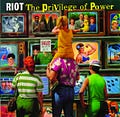
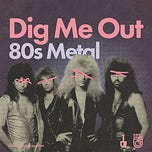



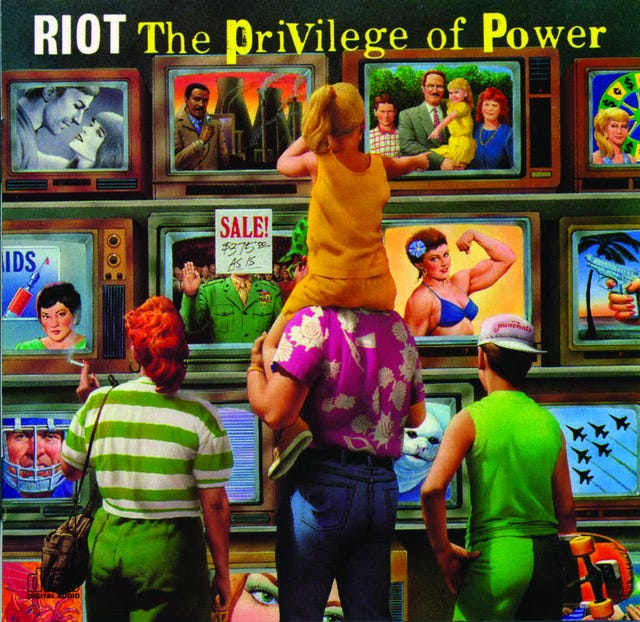



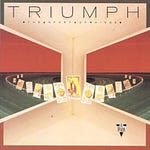


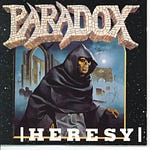
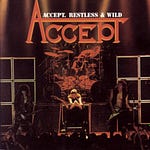
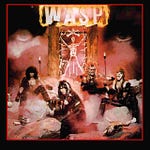
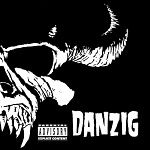
Riot - The Privilege of Power | 80s Metal Revisited